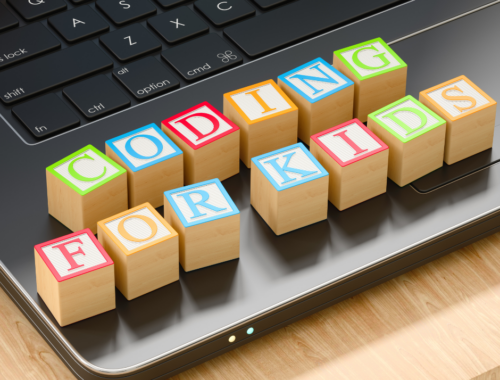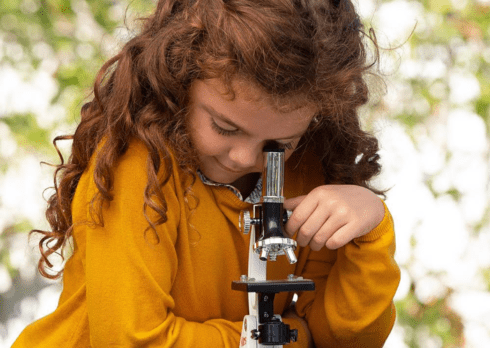
FREE Resources to Help You Celebrate Computer Science Education Week
How are you celebrating Computer Science Education Week? Today I’ll share some FREE resources to help you celebrate Computer Science Education Week and get you started with coding. I’ll also share some insight that I hope will inspire you to join the movement to help bring more computer science education to our kids.
This year Computer Science Education Week runs from December 3rd through December 9th. You may have already heard kids, colleagues, other parents, talking about this exciting week of learning and exploration. Maybe you’re already participating in Hour of Code. But if they’re not, no worries. Today I’ll give you all the details so you can celebrate Computer Science Education week at school or home and encourage kids to learn to code, even if you have no idea what I’m talking about. Read on!
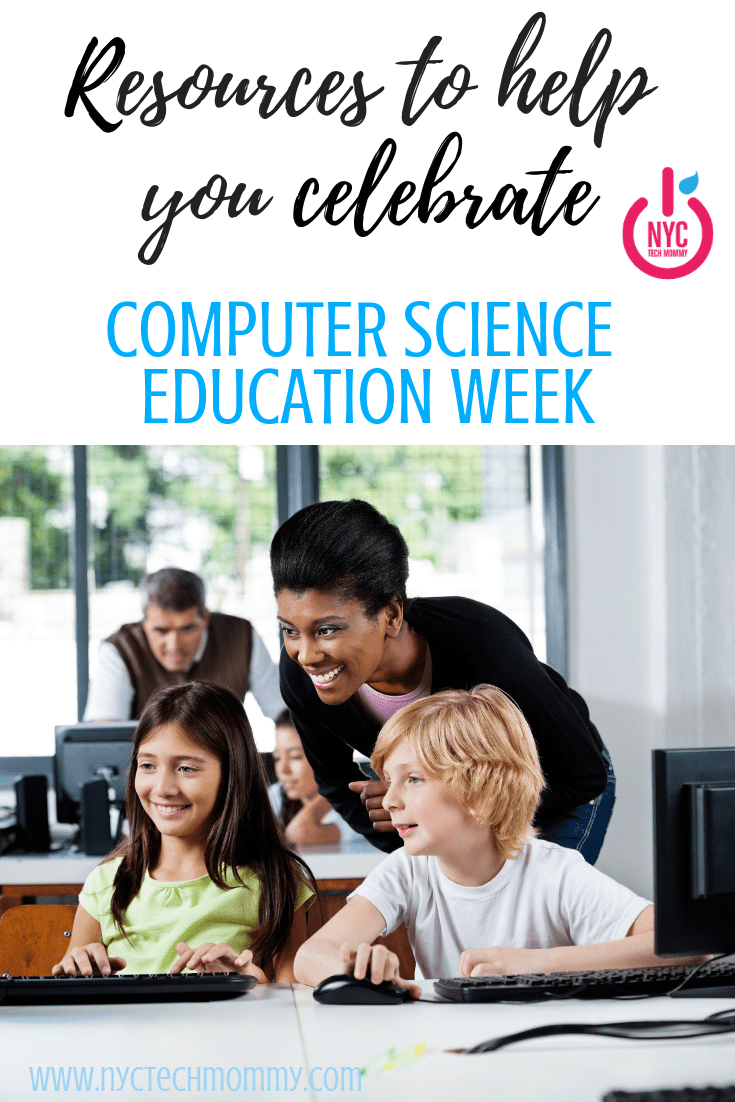
Are you a teacher? Never done Hour of Code before? Start this training now and earn your badge!
Here are some free resources both teachers and parents will find useful in getting started.
Did you know? Computer Science Education Week is held annually in recognition of the birthday of computing pioneer Admiral Grace Murray Hopper who was born on December 9, 1906.
For the fourth year, Minecraft is partnering with Code.org to support Hour of Code, a global movement demystifying computer science and making coding more accessible through one-hour tutorials and events. Hour of Code helps get students ‘Future Ready’ by connecting them with STEM learning experiences and career opportunities.
This year Microsoft launched a new Minecraft Hour of Code tutorial, the Minecraft Voyage Aquatic, which takes kids on an aquatic adventure to find treasure and solve puzzles with coding. You can find it here and learn more about the tutorial in this blog post. I think it’s great how this and other tutorials on the code.org website encourage young learners to think creatively, try different coding solutions, and apply what they’ve learn from playing games they love, such as Minecraft. Other tutorials include: Minecraft Adventurer, Minecraft Designer, and Minecraft Hero’s Journey.
There are so many reasons why young students should learn computer science. It helps nurture the skills they’ll need for the jobs of tomorrow — problem-solving skills, logic, creativity and more. By starting early, parents and teachers can help build a child’s foundation for success in any 21st-century career path they may choose.
Recently I had the pleasure of chatting with Annie Arnold, Director of Communications at Microsoft Education and she shared some great insight with me. Annie explained Microsoft’s recent partnership with YouGov to survey K to 12 teachers across the U.S. to get their thoughts and feelings about how Computer Science Education is being used in schools. The findings aren’t at all surprising to me (as a teacher) but they were eye opening, to say the least.
Survey Methodology: All figures, unless otherwise stated, are from YouGov Plc. Total sample size was 540 K-12 teachers. Fieldwork was undertaken between 5th – 12th November 2018. The survey was carried out online.
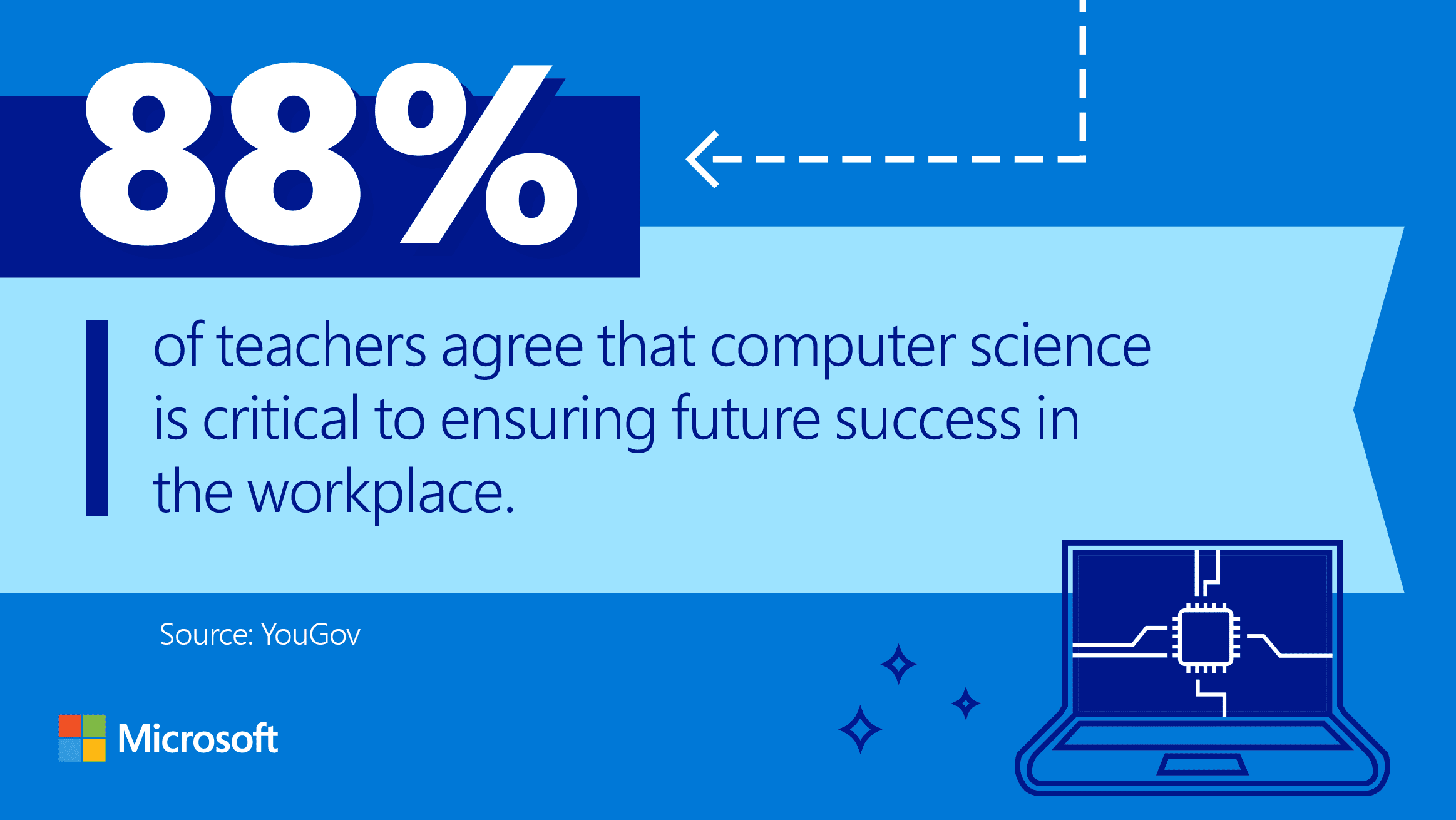
I thought it interesting to share these survey findings with you so that we can all better understand the importance of getting onboard with computer science education. Not only to help our kids learn but also to get the conversation started so that we can find new ways to support our schools (and educators) in providing the best well rounded education for all of our kids. Hopefully the details I’m about to share with you will encourage you to join the movement to bring computer science to everyone!
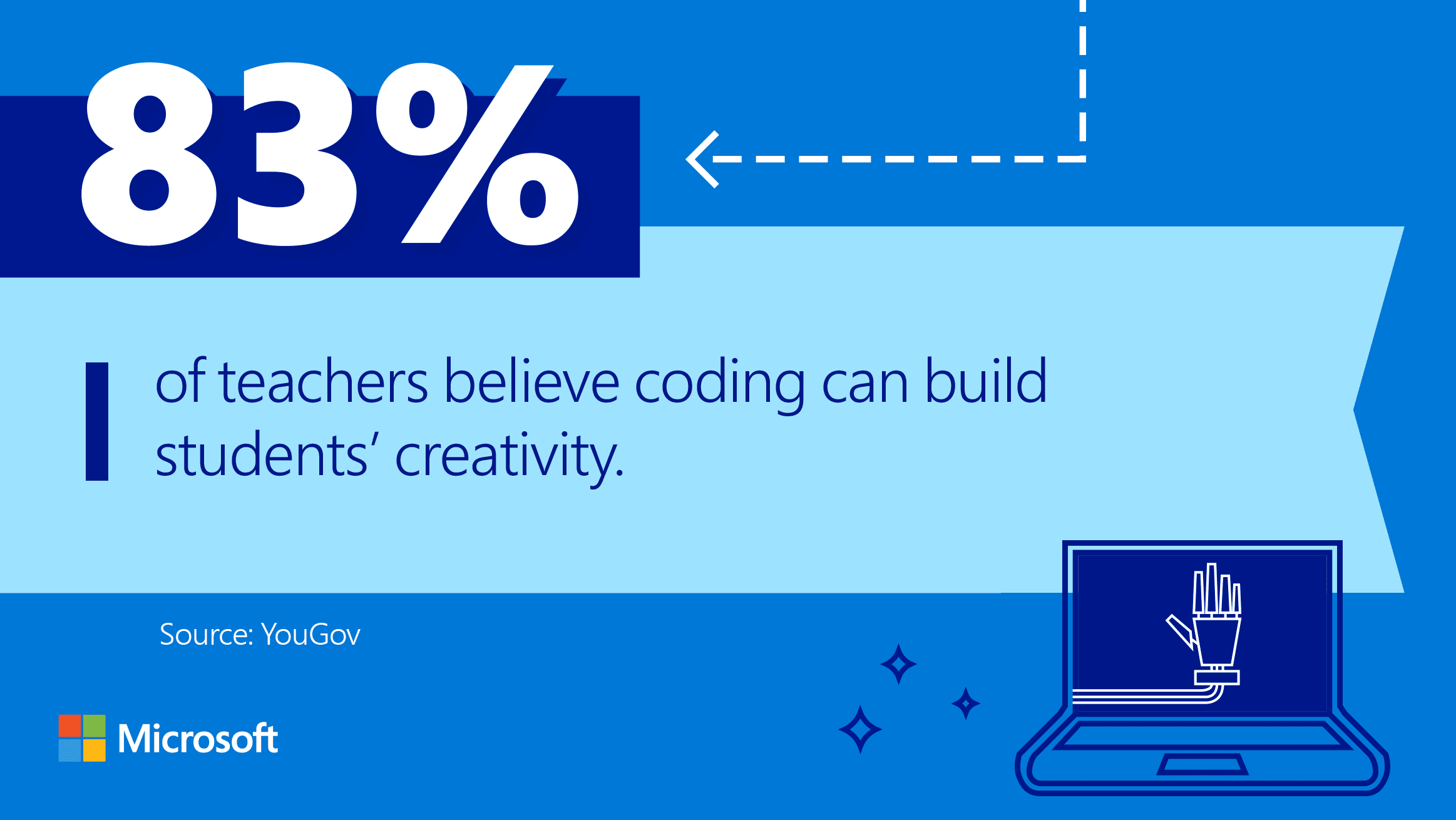
Teachers said they believe computer science education can help develop important skills for students beyond simply coding, when asked to select the skill it can best develop (aside from coding), nearly four in ten (38%) said problem solving while three in ten (31%) prioritized its ability to build logic and reasoning skills.
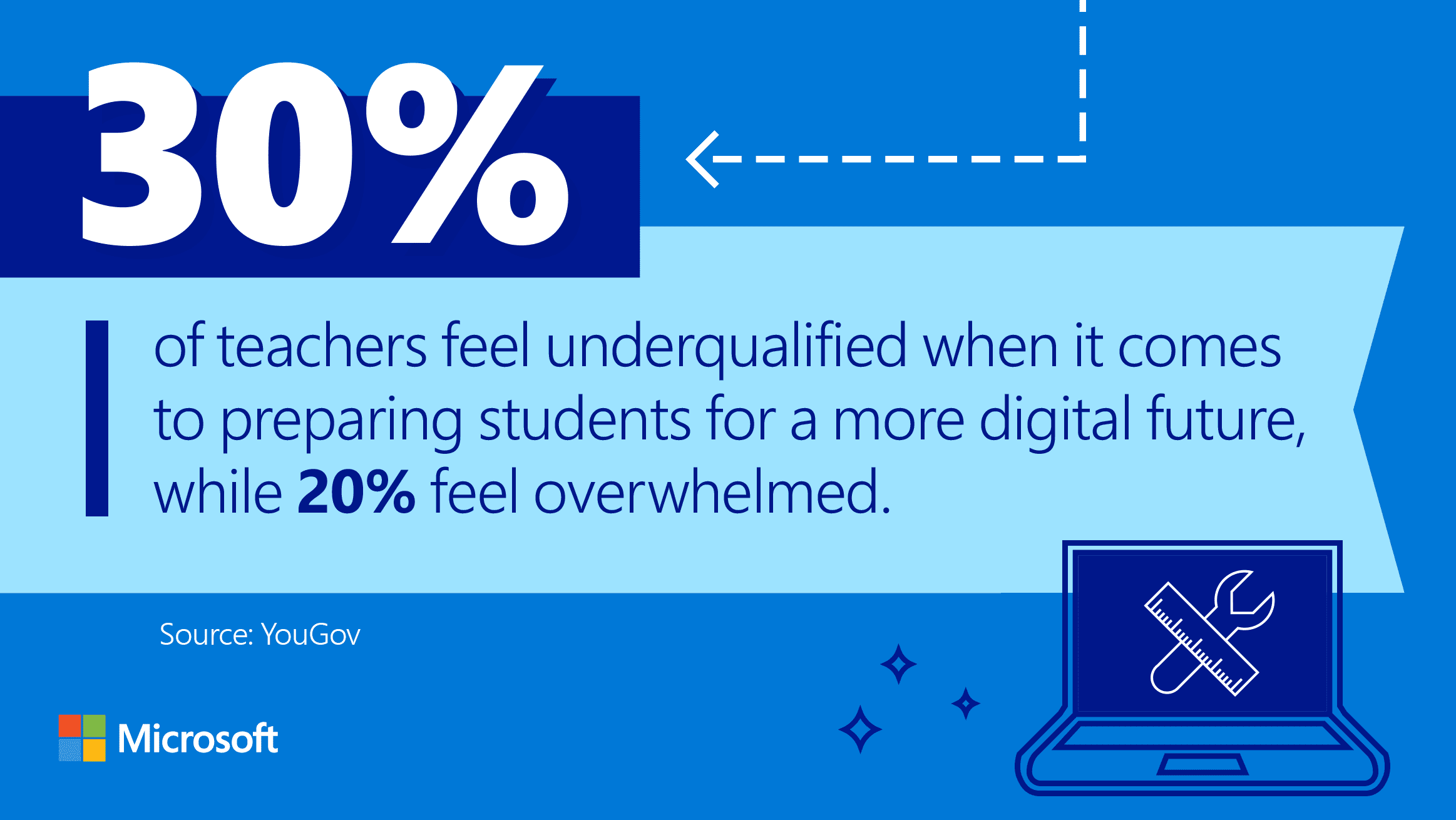
Although this survey showed that 88 percent of teachers agree that computer science is critical to ensuring students’ future success in the workplace, when asked, 30 percent of teachers said they felt under qualified when it comes to preparing their students for a more digital future. Two in ten teachers responded that their students are not taught computer science at all in school. 60 percent of teachers expressed that computer science is not part of their school’s curriculum and 30 percent of teachers said that this is due to lack of funding.
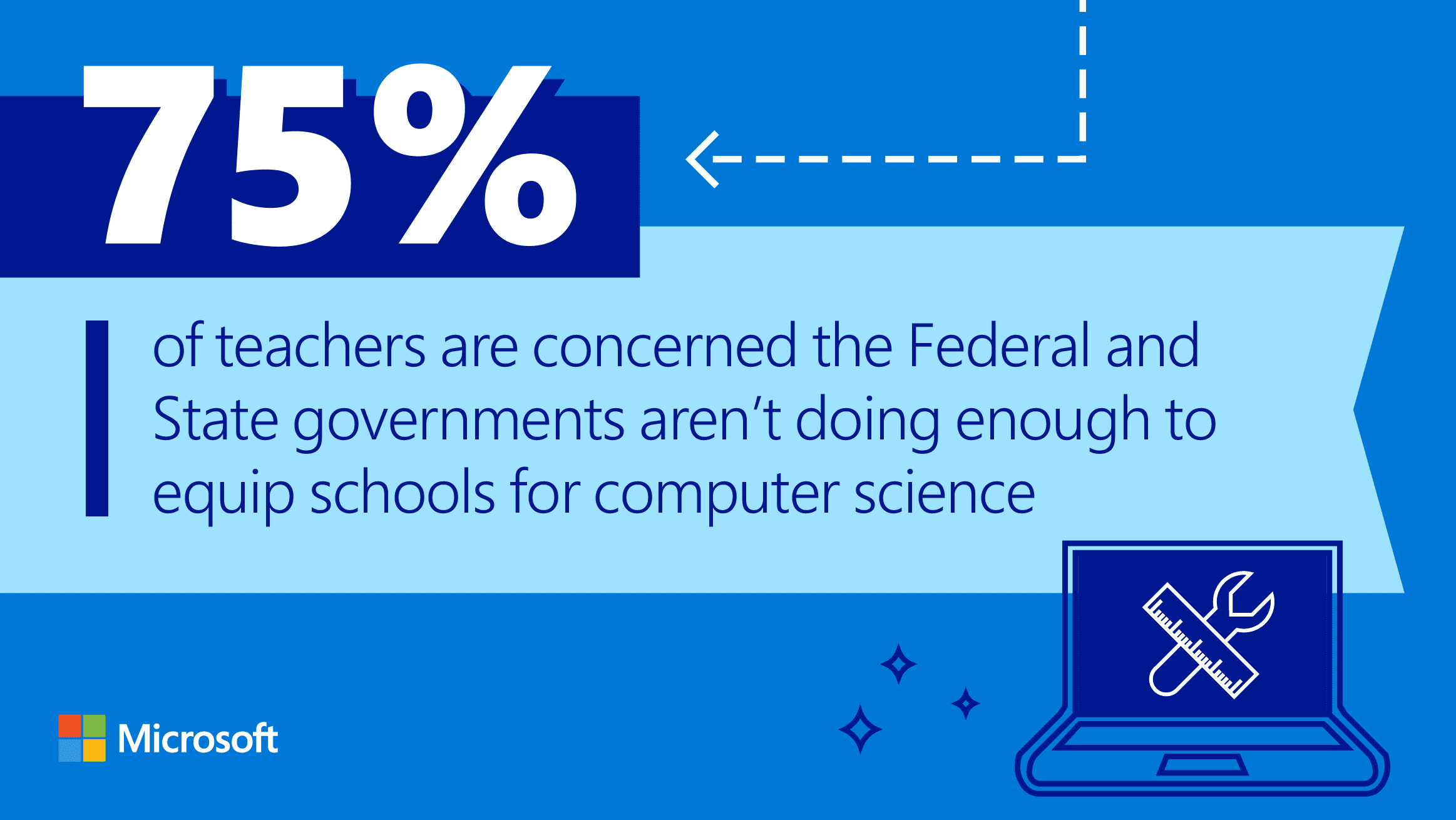
While this survey indicates teacher concern that the Federal and State governments aren’t doing enough to get schools ready for computer science education, when asked, 80% of teachers also believed that big tech companies should be doing their part to help.
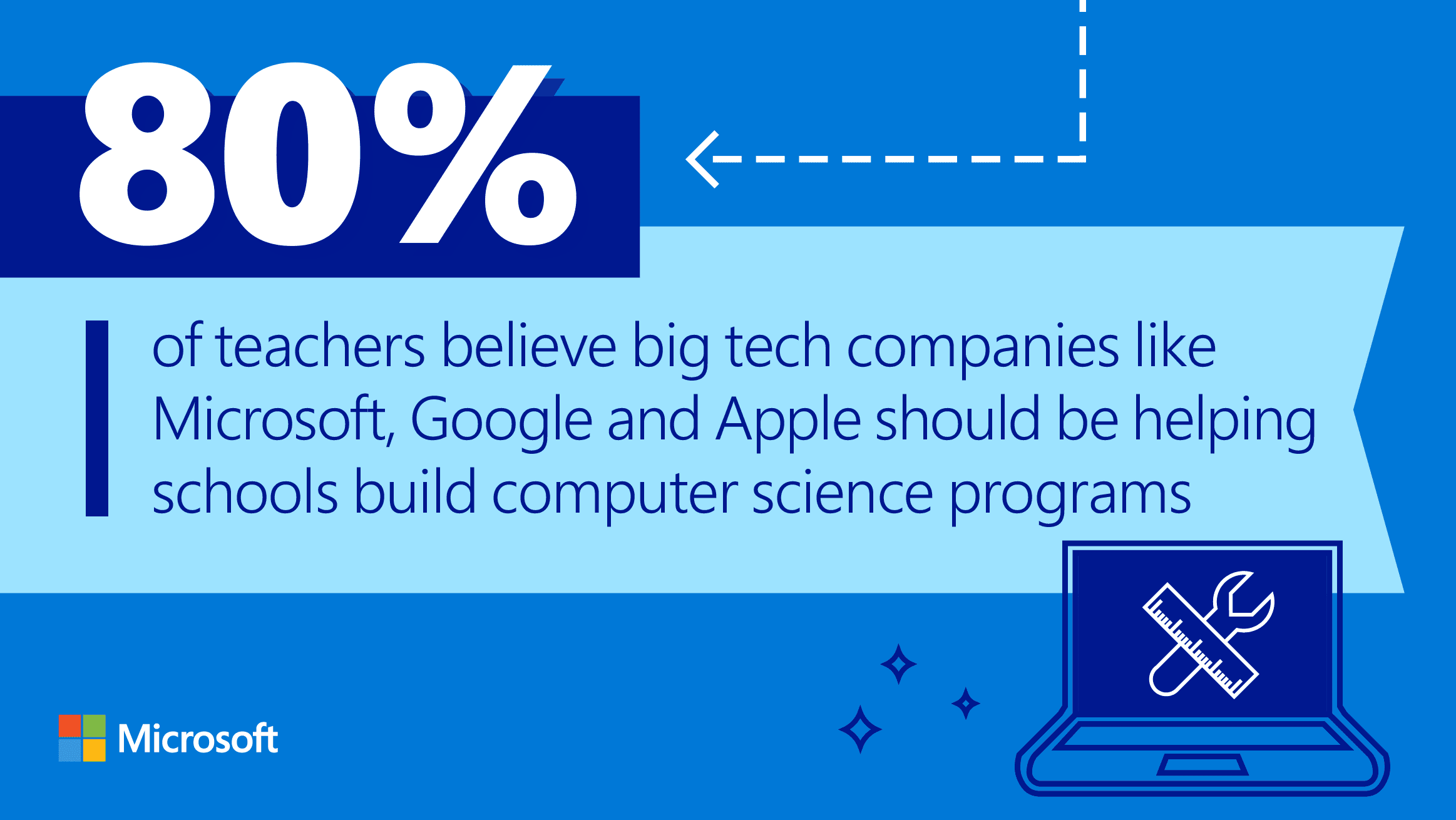
This week Microsoft announced it’s new commitment of $10 million to help Code.org continue advocating for computer science education policy, so every state is taking steps to increase access to computer science education in schools and to help every school provide its teachers with professional development in computer science. Kudos!
Microsoft has been working to help bring computer science education to schools and to help pass policies to expand access to CS by partnering closely with Code.org. Working together both organizations have advocated how computer science is one of the few policy issues that can address both foundational education needs and workforce development demands for a state’s future workforce.
In addition to this new $10 Million commitment. Microsoft continues to create tools that give teachers simple ways to start teaching computer science.
There is no better time to introduce kids to computer science than during Computer Science Education Week. No matter if you’re an educator or a parent, the free and easy-to-use online resources being offered through Microsoft and Code.org can help you get started. You and your kids can participate without any knowledge of computer science. That’s the beauty of it!
To recap, here are some of the free online resources you can tap into to help you celebrate Computer Science Education Week:
Participate in Minecraft Hour of Code – Visit Code.org and complete the new Minecraft Hour of Code Tutorial, Voyage Aquatic. Go on an aquatic adventure to find treasure and solve puzzles with coding
Hour of Code Facilitator Training – New to Computer Science Education? Get the training you need to bring hour of code with Minecraft to your classroom and earn a badge.
Introduce Kids to Real-World Computer Science Professionals – Skype in the classroom, in partnership with Code.org, is hosting 30-minute classroom broadcasts and live Q&A during Computer Science Education. See how professionals use code to create amazing new things and show students how fun and exciting careers in computer science can be!
Ignite Interest in STEM – Encourage curiosity and confidence, connect in-class experiences to real-world concepts, and prepare kids for a promising future with Microsoft Education products, programs, and partnerships that ignite curiosity and wonder.
Free Computer Science Workshops at local Microsoft Stores – Check the schedule here and find a free in-store workshop near you. Attend and help kids develop the computer science skills they need.
Are you onboard? How will you be supporting and taking part in computer science education today, and beyond?
You May Also Like

NEW Camp Hullabaloo Book Subscription Series for Kids This Summer
May 25, 2020
3 Simple Ways to Celebrate Earth Day with Kids
April 22, 2021